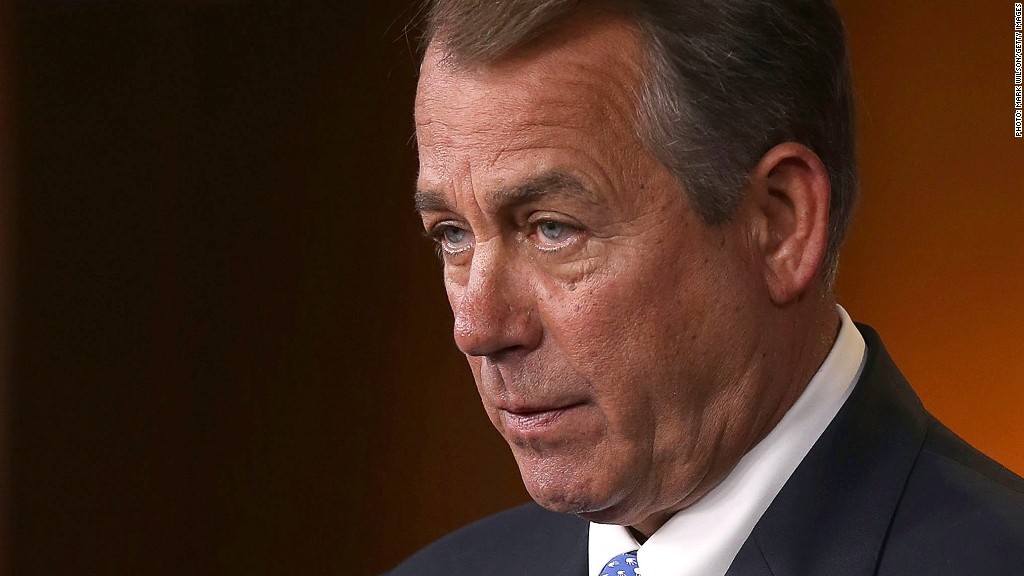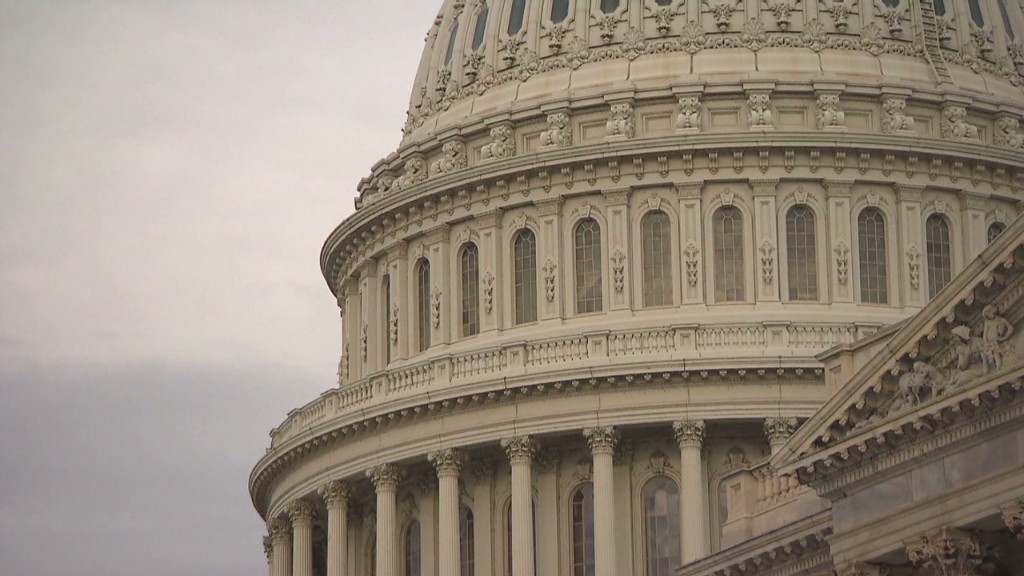
The uncertainty created by the budget standoff on Capitol Hill is turning everyone into an oddsmaker.
Will the government shut down? Will the Treasury Department be forced to default on some of the government's legal obligations?
CNN: House votes to defund Obamacare
CNNMoney compiled the most recent odds given by four seasoned political observers.
As a group they agree a shutdown is more likely than a default, but they are by no means unified as to the chances for either.
Greg Valliere, chief political strategist, Potomac Research Group
Chance of a shutdown: Less than 50% but rising
Chance of a default: 10%, up from 5% a few days ago.
House Republican leaders have "capitulated to their rebellious troops, moving closer to a government shutdown and a debt crisis that even Karl Rove argues could do great damage to the Republican Party," Valliere wrote in a research note.
Sean West, U.S. policy director, Eurasia Group
Chance of a shutdown: 20%
Chance of a default: "Infinitesimal"
If a shutdown happens, West said, "it would be an accident because nobody in power actually wants it. ... The biggest risk is of a miscalculation: That risk has gone up as both sides play hardball, with no responsible adult herding the key stakeholders together."
Related: Government shutdown gears in motion
As for defaulting, "It's impossible to believe Congress would let it happen." The "fail safe," he said, is House Speaker John Boehner, who won't want a default on his watch.
Stan Collender, budget expert and former Democratic Hill staffer
Chance of a shutdown: 70%
Chance of a default: 10% to 20%
Collender cites a long list of reasons for his high shutdown odds in his blog Capital Gains and Games. Among them, there's no charismatic leader who can overcome the partisan warfare. President Obama and Boehner have too little sway with their own parties. Senate Minority Leader Mitch McConnell, who has served as a deal closer in prior budget standoffs, is now weakened by the fact that he's facing a primary challenge by a Tea Party candidate.
Plus, for many House Republicans, the "negative political impact" of the shutdowns in the mid-1990s is "a distant (or nonexistent) memory."
But the biggest complication is that this year's fight isn't really about the budget -- it's about Obamacare. And that makes it harder to strike a budget deal that can avert a shutdown or default, he argues.
Jim Kessler, senior vice president for policy at Third Way, a Democratic-leaning centrist think tank; and former Democratic Hill staffer
Chance of a shutdown: 75%
Chance of a default: 50%
"As bad as a shutdown is, it's not as devastating as a default and I think Republicans are willing to go there. It would be bad, but the sun will still rise in the morning," Kessler said.

As for raising the country's borrowing limit, Kessler also finds it hard to be sanguine.
During the 2011 debt ceiling fight, he could see a way out. This time he sees more chance for "chaos than resolution."
"I think there's a very real possibility that we default on some obligations, experience very bad market turmoil, and then quickly pass a debt deal that could possibly cost Boehner his speakership."


